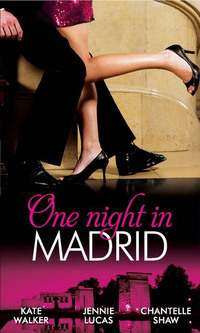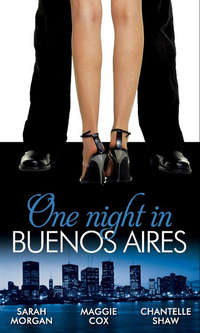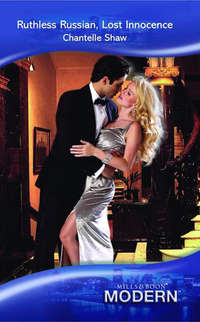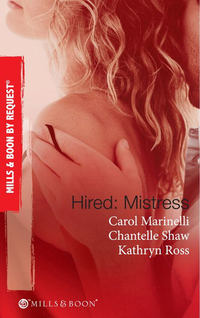
Полная версия
Behind the Castello Doors
He subjected her to a slow, deliberate appraisal, taking in her tangled mousy hair and the drab, shapeless coat that looked as though she had borrowed it from a street beggar.
‘I think not, Ms Granger,’ he drawled mockingly. ‘Undoubtedly I would remember if you had ever shared my bed.’
Heat scalded Beth’s cheeks. Cesario Piras’s meaning was humiliatingly clear. She was far too unattractive ever to have caught his eye. No doubt he was only interested in gorgeous women like Mel had been. Blonde, beautiful Mel had had men lusting after her since high school, and it was not surprising that she had attracted the attention of a billionaire banker.
Compared to her best friend, Beth had always felt like an ugly duckling—and never more so than at this moment, when she was bedraggled and exhausted, wearing a coat she had bought from a charity shop which was several sizes too big. Recalling the scornful glances of the party guests when she had walked into the ballroom, she had a sudden flashback to when she was sixteen and had attended the school prom in a dress that the manager of the care home had lent her. Mrs Clarke had said she looked lovely, but of course she hadn’t. She had looked what she was: a girl with no parents and no money, in a dress that didn’t belong to her.
Sophie would never suffer that kind of humiliation, Beth vowed fiercely. Not if she could help it. She loved the baby with all her heart, but she knew from bitter experience the importance of money. She wanted Sophie to have all the things she had never had: nice clothes, a good education, the confidence that came with feeling that you were somebody rather than a nobody.
Carefully cradling the baby in one arm, she delved into the pocket of her coat and withdrew a photograph.
‘Sophie is not my child.’
She lifted her chin to meet Cesario’s hard stare and held out the photo to him. ‘This is her mother—Melanie Stewart. Mel attended a party in London exactly a year ago. It was a big event, to celebrate something to do with Piras-Cossu taking over an English bank. I don’t know the details. But Mel met you at the party and later you invited her up to your hotel room. It was a one-night stand. She never even knew your name. But she fell pregnant that night with your baby.’
‘What utter nonsense,’ Cesario snapped witheringly. ‘I don’t appreciate having my time wasted, Ms Granger.’
Her story was so unbelievable it was almost laughable, but he was not amused. He plucked the photograph from Beth’s fingers and glanced down at the image of a voluptuous blonde. The picture meant nothing to him. He did not remember the woman. But then he did not remember much at all about the party at the exclusive Heskeath Hotel in Mayfair a year ago, his conscience taunted him.
It had been his duty to attend the reception, organised by the managing director of the new UK subsidiary of the Piras-Cossu Bank. But that night, just as tonight, Cesario’s thoughts had been with his son. For a couple of hours he’d forced himself to make polite small-talk, but he’d spent the latter part of the evening at the bar, drowning his emotions in neat bourbon.
There might have been a woman. He frowned as fractured memories forced their way into his mind. He vaguely remembered a blonde at the bar. He recalled buying her a drink, and he had a hazy memory of dancing with her.
Shock ricocheted through him. Could there be any truth in Beth Granger’s story? Could he have slept with this Melanie Stewart and have no memory of it? He’d been so drunk that it would have been a miracle if he had managed to perform, let alone father a child, he thought derisively. A miracle—but he could not discount the possibility.
Conflicting emotions surged through him: disbelief, followed by self-disgust that he might have had sex with the woman in the photograph and yet retain no knowledge of her or what had taken place between them. He could not profess that he lived like a monk. He’d had one-night stands occasionally, but they had been a mutual exchange of sexual pleasure—not a drunken fumble he had no memory of and which, if this woman Beth Granger could be believed, had resulted in a child—his child.
His eyes were drawn to the baby. A girl—named Sophie. Inferno! Was she his daughter? He felt a pain in his gut, an ache of longing for the child he had lost. Beth Granger could be lying, he reminded himself. For a start, he did not understand why she had brought the baby to Sardinia. Where was the child’s mother?
A tiny cry broke from the baby as she began to wake.
‘She’s due a feed,’ Beth explained, looking at him anxiously. ‘I need to make up her formula.’
The sound of the child’s cry pierced Cesario’s soul. He remembered the first cry his son had given as he had entered the world, and he closed his eyes for a few seconds, praying that when he opened them again he would find that he had imagined the woman and the baby.
She was still there, her attention focused on the child that she was now rocking in her arms. The baby could not be his. His mind refused to accept such an astounding idea. But he realised that he could not send Beth Granger away without listening to what she had to say.
Cesario withdrew his phone from his jacket and pressed a number on the keypad. Almost instantly there was a knock on the door and the butler entered the room.
‘Escort Ms Granger to the library and ensure that she has everything she requires,’ he instructed Teodoro. ‘I will join her shortly.’
The butler dipped his head in acknowledgement. ‘Please follow me, Signorina Granger.’
Feeling horribly self-conscious, Beth walked back through the great hall after the butler and expelled a sigh of relief when he closed the doors behind them and she was no longer the subject of dozens of curious glances. Her legs felt shaky. She gave a rueful grimace as she acknowledged that her encounter with the master of the Castello del Falco had left her feeling as limp as a wrung-out rag.
He was so intimidating. And so ruggedly handsome, a little voice in her head whispered. Even with that shocking scar. She wondered what had happened to him. How had he come by such a terrible injury? But, recalling his steel-hard gaze, she knew she would never have the courage to ask.
The taxi driver had carried Sophie’s pushchair and nappy bag into the castle and left them on the porch, she explained to Teodoro when he ushered her into the library. While he went to fetch them she laid the now wide-awake Sophie on the rug, and was rewarded with a winsome smile that melted her heart.
‘You are too cute,’ she told the baby girl softly. At the sound of her voice Sophie chuckled and kicked her legs. But Beth knew from experience that Sophie’s smiles would quickly turn to a demanding cry if she was not fed soon. Taking responsibility for her best friend’s baby had been a steep learning curve, she acknowledged ruefully. But never once, not even on the nights when Sophie had simply refused to sleep and cried for hours, had she regretted that Mel had appointed her as the baby’s guardian.
Even though Mel’s wishes had been clearly stated in her will, Beth had had to go through several nerve-racking interviews with Social Services before she had been deemed suitable to have Sophie and allowed to take her home from the hospital. But none of that mattered. The important thing was that Sophie would not grow up in a children’s home, as her mother and Beth had both done.
‘Your mummy wanted me to look after you, and be a mum to you in her place,’ she whispered to Sophie. ‘I will always love you, and I’ll never let anyone take you away from me. It’s just you and me, my angel.’
But that wasn’t quite true. The thought struck Beth as she shrugged out of her coat. There was also Sophie’s father to consider. Her stomach muscles tightened involuntarily as she wondered how long it would be before Cesario Piras appeared. She could not forget those moments in the ballroom when he had studied her with unconcealed contempt, as if she was something unpleasant that had crawled out from beneath a stone. She knew perfectly well that she was plain, and usually she did not care overmuch about her lack of looks, but for some reason Cesario’s dismissive expression had made her wish that she was beautiful and glamorous—like so many of his female party guests.
She sighed. There was no point wanting to be something she was never going to be, she told herself firmly. But she could at least make sure that she looked tidy and presentable. A glance in the mirror above the fireplace confirmed that her hair was no longer secured in a neat chignon but was hanging in damp rats’ tails around her face. There was no time to tie it up again when Sophie needed her nappy changed, and so she quickly removed the last of the pins and pulled a comb through her hair before she knelt down on the rug to attend to the baby.
Cesario strode across the entrance hall towards the library, his tension evident in the rigid set of his jaw. He had delegated to his chief executive the task of making a speech to the guests, and now he was intent on getting to the bottom of Beth Granger’s extraordinary story. His initial shock at her startling claim that he was the father of the child she had brought to the castle had been replaced by a healthy dose of common sense. There were numerous flaws in her story and many questions that he wanted answered before he would give her claim any credence.
It was even possible that she was gold-digger who had invented her incredible tale to try and extort money out of him, he thought darkly. He’d had experience of a confidence trickster once before. Some years ago a young man had declared that he was Orsino Piras’s illegitimate son and was entitled to a share of the Piras fortune. DNA evidence had disproved the claim, but Cesario had never believed there was any truth in it. His father had been a cold, remote man, and his only mistress had been the bank which had now been owned by the Piras family for five generations.
He pushed open the library door and hesitated on the threshold of the room, his eyes drawn to the young woman who was sitting on the sofa cradling the baby in her arms. Without her coat Beth Granger was much slimmer than his first impression of her. She was rather too slender for his tastes, he mused, noting her small, high breasts and the fragile line of her collarbone visible where the top couple of buttons of her blouse were undone.
Her grey skirt and navy blouse looked as though they had been bought from a bargain store, and her flat black shoes were scuffed and well-worn. But, although her clothes were unflattering, she possessed a quiet grace that he found unexpectedly appealing. She was not beautiful in a conventional sense, Cesario observed. But her heart-shaped face, slightly upturned nose and full mouth held a certain charm, and now that her hair was loose he saw that it was a pale golden-brown, gleaming like silk in the light from the lamp and falling to halfway down her back.
He was surprised by a compelling desire to touch her hair and feel its softness against his skin. He immediately dismissed the thought and walked into the room, noting the quick, nervous glance she darted at him. For a few seconds his gaze locked with a pair of vivid green eyes fringed by hazel lashes, before she returned her attention to the baby she was feeding from a bottle.
Images from the past flooded his mind. He remembered being in the nursery with Raffaella, watching her feeding Nicolo. Their love for their son had been the one thing they had shared; the only bond between two people whose marriage had in no way been a love-match.
For him, marriage to Raffaella Cossu had ensured the merger of the Piras and Cossu banks and made him one of the most powerful men in Italy. Driven by ambition, he had considered a marriage of convenience a small price to pay—or so he had believed, Cesario thought grimly. He had liked Raffaella well enough, and falling in love had never been on his agenda. Experience had taught him that love was an overrated emotion—one which frequently led to pain and disappointment.
He had loved his mother once—adored her. But when he was seven years old she had left his father for her lover and he had never seen her or spoken to her again.
‘Stop snivelling like a baby,’ his father had told him when he had found him crying in his room. ‘Do not waste your tears on a woman. You will find as you grow older that there are always plenty more, especially for a man who has wealth and power.’
Power was the golden grail, Cesario mused cynically. For the Cossu family their lack of a son to inherit their bank had led them to seek a merger with the Piras bank by marrying off their daughter to Cesario. Raffaella had obeyed her parents’ wishes, or perhaps been coerced—Cesario had never known. And eighteen months after their marriage she had dutifully given him an heir.
All would have been well if she had not fallen in love with another man. Love had blown everything apart. Raffaella’s decision to leave her marriage to be with her lover, and Cesario’s determination to keep his son—whom he had loved more than he had known it was possible to love another human being—had resulted in a bitter confrontation, and ultimately in the accident which had claimed Raffaella and Nicolo’s lives.
A nerve jumped in Cesario’s cheek. He had become adept at blocking out painful memories, and his expression was shuttered as he stood in front of the fireplace and stared at the woman whose arrival at the castle had such disturbing implications.
Sophie had finished her feed, and when Beth sat her upright on her lap she looked about her with wide-eyed curiosity. With a mass of silky black hair and dark brown eyes fringed by impossibly long lashes, the child was as pretty as a doll, Cesario noted, finding it impossible to tear his gaze from her.
‘When was she born?’ he demanded abruptly.
‘The twenty-eighth of October.’
He stiffened at Beth’s reply and his expression became steely. ‘In that case she cannot be my child. If Sophie was conceived this time last year she would have been due in December. I’ll be frank with you. I have no recollection of sleeping with the woman in the photograph, but I’d had a lot to drink and I cannot be certain that I did not invite her back to my room. But Melanie Stewart must have already been pregnant if she gave birth seven months later.’ His tone became mocking. ‘You should have worked out the maths before you embarked on your little game, Ms Granger.’
‘I’m not playing a game,’ Beth said sharply, stung by his sarcasm. ‘Sophie was born nearly two months premature. That’s why she’s small for a four-month-old baby.’ She flushed at Cesario’s disbelieving look. ‘It’s the truth. Mel was ill and the doctors had to deliver Sophie early.’
‘So where is Melanie Stewart now? Why isn’t she caring for her daughter? And who, exactly, are you?’
‘Mel is dead.’ Beth’s voice caught in her throat as she stared at Sophie and felt a pang of grief for her friend, who had only seen her baby a few times before she had died. It still seemed impossible that Mel was gone. She had always been the strong one out of the two of them, the daring one, who had teased Beth for being a timid mouse and protected her from the school bullies with her acid tongue and fiery temper.
She realised that Cesario was waiting for her to continue, and took a ragged breath. ‘Last autumn there was a flu epidemic in England that was especially serious for pregnant women. Mel thought she just had a cold, but within two days she was in Intensive Care, fighting for her life. The doctors decided to deliver Sophie early to give mother and baby a chance. But Sophie was tiny; she only weighed three pounds and was placed in the special care baby unit.’
Tears choked her as she remembered watching Sophie through the clear plastic walls of the incubator, willing the tiny scrap of humanity to live. ‘For a while Mel rallied and things looked optimistic. She was even able to hold Sophie once, for a few minutes. But a few days later she died suddenly. The doctor said the flu virus had put too much strain on her heart.’
Beth blinked hard to dispel her tears. She finally had Cesario’s attention, and she needed to convince him that he had a responsibility towards Sophie. She swallowed and forced herself to continue.
‘A few days before her death Mel told me she had recognised your photo in a newspaper. The paper had printed your name, and she realised that the man she had slept with at the party in London was Cesario Piras, and that you were Sophie’s father. I had already agreed that if anything happened to Mel I would look after Sophie. Mel made me promise that if she died I would try to find you and let you know you had a daughter.’
Cesario was silent while he absorbed the information Beth had given him. She must know it would be easy enough to verify her story, and therefore it was unlikely she was lying. But even if what she had said was true, it did not prove that the child on her lap was his.
If only he could remember the events at that party in London a year ago. But that night he had turned to drink to banish the demons that haunted him, to silence for a few hours the voice in his head that insisted he had been partially responsible for Nicolo’s death.
His hard features revealed nothing of his thoughts. ‘What part do you play in this, Ms Granger? Why did you agree to take care of Ms Stewart’s child? Why aren’t her family involved?’
‘Mel didn’t have any family. Her parents died when she was young and she grew up in care—as I did, after my mother died. We met in a children’s home and became friends.’ Once again Beth’s voice was husky. ‘When Mel found out she was pregnant I promised I would help her bring up the baby. After she died I learned that she had named me as Sophie’s legal guardian.’
Cesario swung around and rested his arm along the mantelpiece, staring at the black empty grate. He should have asked one of the staff to light a fire, he thought heavily. He could hear the rain still beating against the walls of the castle. Perhaps the room was too chilly for a small baby.
He remembered how in the first weeks after Nicolo had been born he had felt awed by the responsibility of caring for a new life. His little son had seemed so vulnerable that Cesario had found himself constantly checking on him, and he had demanded that fires be lit in every room in the castle so that the baby was not exposed to any cold draughts.
He had never expected to see another baby at the Castello del Falco. Four years ago he had vowed never to marry again, or have another child. It was inconceivable that anyone could ever replace Nicolo in his heart. Yet, unbelievably, he was now faced with the possibility that he had a daughter who had been conceived on the anniversary of the date he had lost his son. Was it a bizarre twist of fate? he wondered. Or a fabrication invented by a woman who claimed she had been asked by the child’s mother to find him? There was only one way to establish the truth.
‘I will arrange for a DNA test to be done,’ he said abruptly. ‘I admit I was drunk at the party in London a year ago, but I find it hard to believe that I slept with your friend and have no recollection of it.’
The idea that he could have been so out of control that he’d unknowingly had sex with a woman he’d picked up in a bar did not sit comfortably with Cesario.
‘However,’ he continued roughly, ‘I accept that it is a possibility, and therefore a paternity test is necessary. Until it can be done, and the results obtained, you and the baby will stay here at the Castello del Falco.’
Beth felt a spurt of shock—partly at the arrogance of the man standing a few feet from her and partly at the implication of his words. Stay here? In this grim, grey castle? With its equally forbidding owner? The idea sent a shiver through her.
‘Oh, no, that’s not necessary,’ she explained quickly. ‘I expected you would want a DNA test, so I booked a room at a hotel in Oliena for three days. Once the test has been done I’ll take Sophie back to England and wait there for the results.’
She did not add that she was sure the test would prove Cesario was the man Mel had slept with. Mel had been certain she had recognised him in the newspaper.
You must find Cesario Piras and demand financial help for Sophie, she had said in the note she had left for Beth.
Mel must have sensed that she was not going to live, Beth thought sadly. And in her last days she had attempted to arrange some measure of security for her daughter by asking Beth to search for the man she’d believed was Sophie’s father.
Cesario frowned. ‘It makes more sense for you and the child to stay here until we know for sure whether or not she is mine.’
His gaze was drawn to the baby, and he felt as though he had been kicked in the gut when she turned her head and stared at him with her huge dark eyes. She was beautiful—almost as beautiful as his son had been. Was it his imagination, or did she bear a resemblance to Nicolo? Dio, was she his?
The idea was so shocking that he could not begin to assimilate how he felt about it. But one thing struck him forcibly. If Sophie was his daughter she deserved his care and protection. He could not at this point contemplate the notion that she would also deserve his love. Losing Nicolo had almost destroyed him, and the idea of loving another child evoked a host of feelings inside him. The strongest of which, he admitted grimly, was fear. Experience had taught him that love was a bittersweet emotion. It would be better if Sophie was not his child, but until he knew the truth he wanted her to remain here at the castle.
That meant that for now, at least, Beth Granger would have to stay too. He wasn’t sure what to make of her. On the face of it her apparent willingness to take on her friend’s child seemed amazingly altruistic. She was young—he guessed in her early twenties—and from her shabby clothes it was safe to assume that she did not have much money. Could he believe that she had agreed to act as guardian to another woman’s child out of the kindness of her heart?
‘Mr Piras, there’s really no need for you to go to any trouble—especially tonight, when you are busy with your party,’ Beth said a little desperately. ‘The hotel has provided a cot for Sophie, and I left our luggage there.’
‘I’ll send one of my staff to collect your things and bring them back to the castle.’ Cesario’s eyes narrowed when Beth looked about to argue. ‘It is still raining heavily. Surely you cannot think it a good idea to take a baby out in such weather? I am inviting you and Sophie to stay here as my guests.’ He paused, and then added, ‘Under the circumstances, I think we should drop formalities and use our respective Christian names.’
He was so intimidating that she could not imagine she would ever feel confident enough to use his first name, Beth thought wryly. Skirting around the issue of how to address him, she focused on a far more important problem. ‘But where will Sophie sleep? I have her buggy with me, but although she naps in it during the day it’s not suitable for her to sleep in all night.’
‘The castle has a nursery which is fully equipped with everything you might need.’
It was a long time since he had visited the room which had once been his son’s, and for a moment Cesario struggled with the idea of allowing another child to sleep in the antique hand-carved cot that Nicolo had slept in until only a few months before his death, when he had moved into a ‘big bed’. But he could not deny a baby a safe place to sleep, he reminded himself.
‘I don’t want to be a nuisance,’ Beth mumbled, her heart sinking as she acknowledged she could offer no other reason for her and Sophie not to stay at Cesario’s home. She could hear the wind howling around the castle turrets, and the rain hammering against the windows sounded even heavier than when she had arrived. For Sophie’s sake it would be better to remain here, but she wished the enigmatic master of the Castello del Falco did not have such a strange effect on her.









